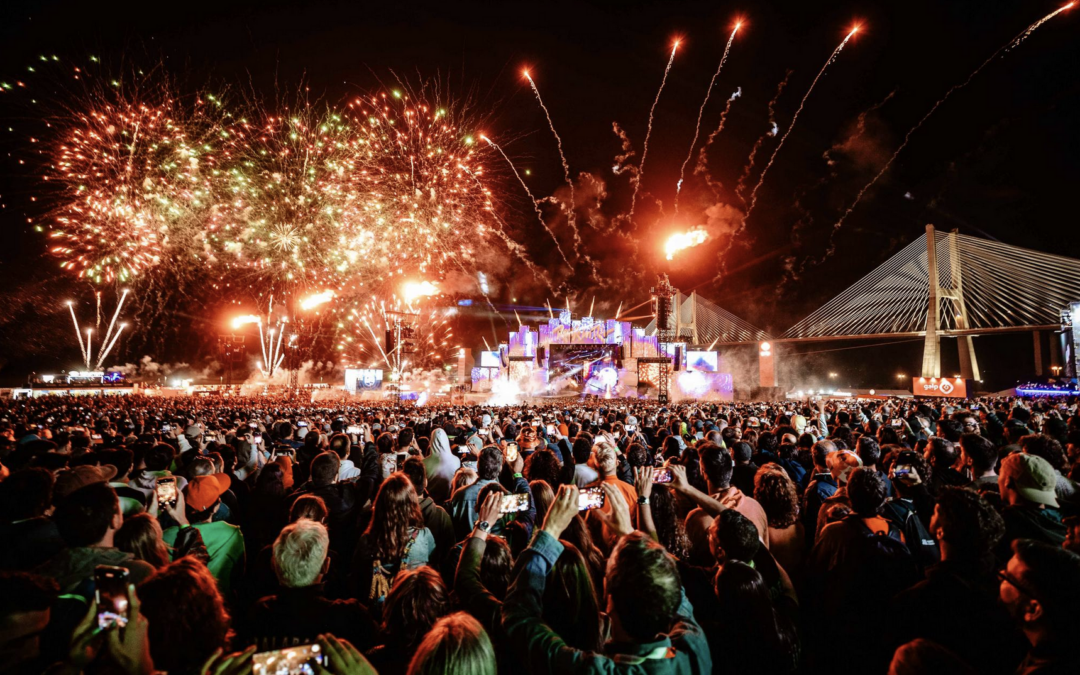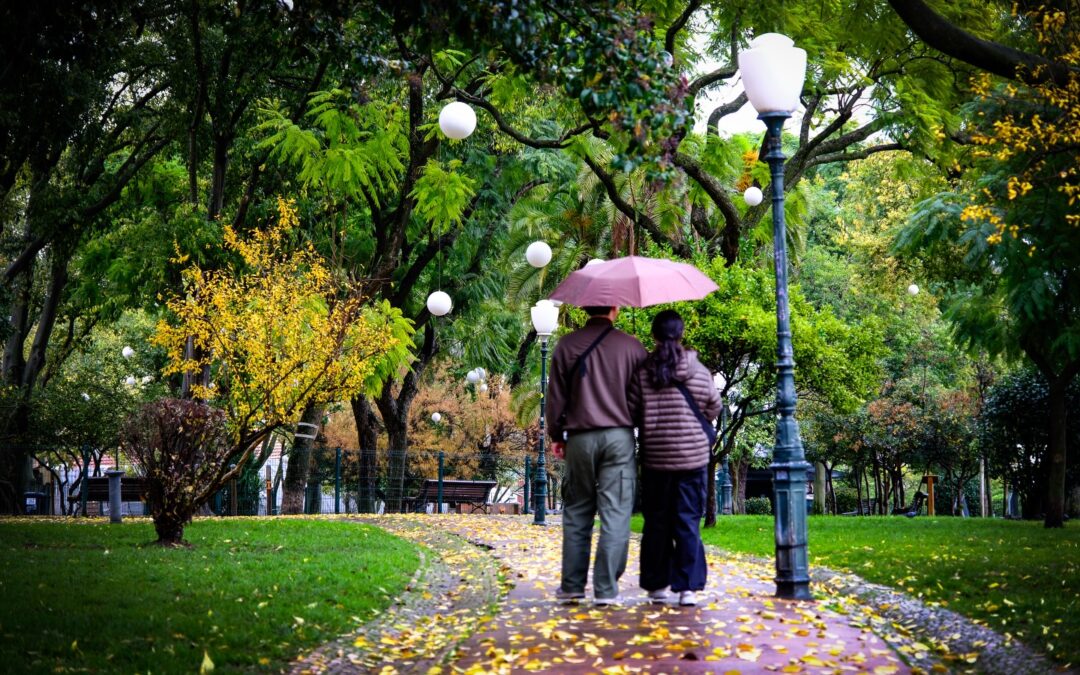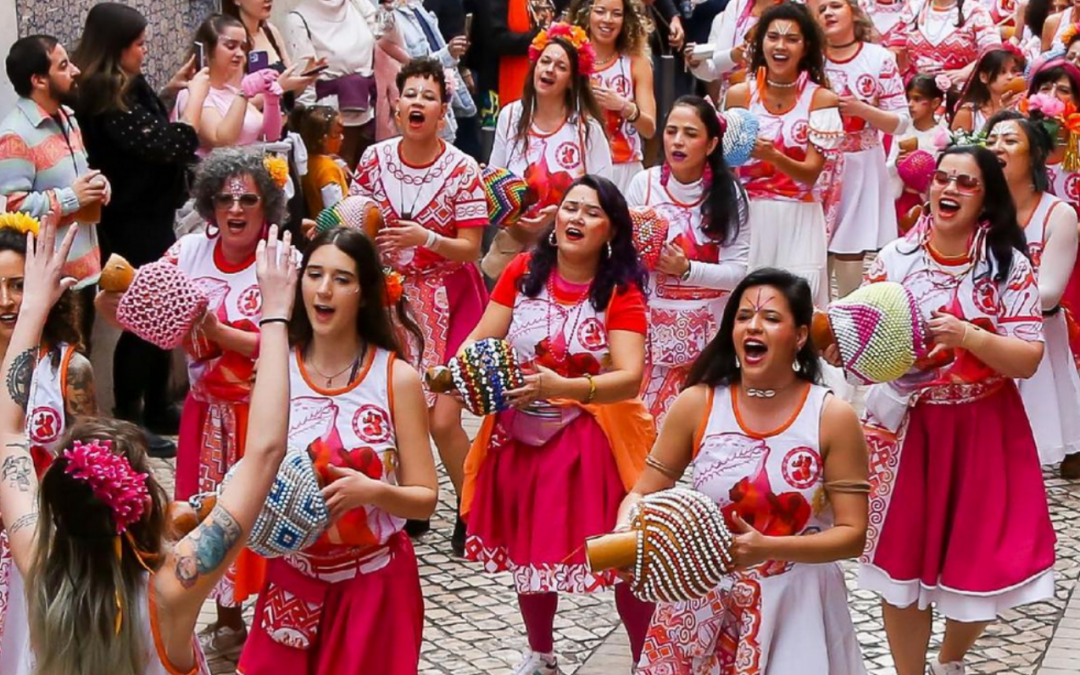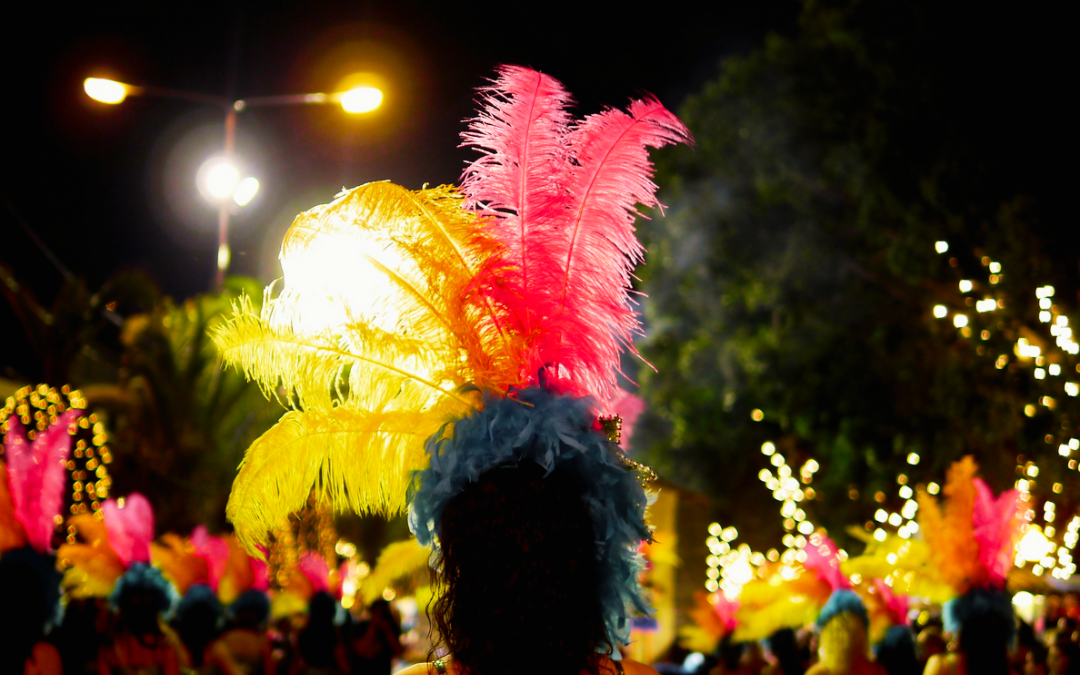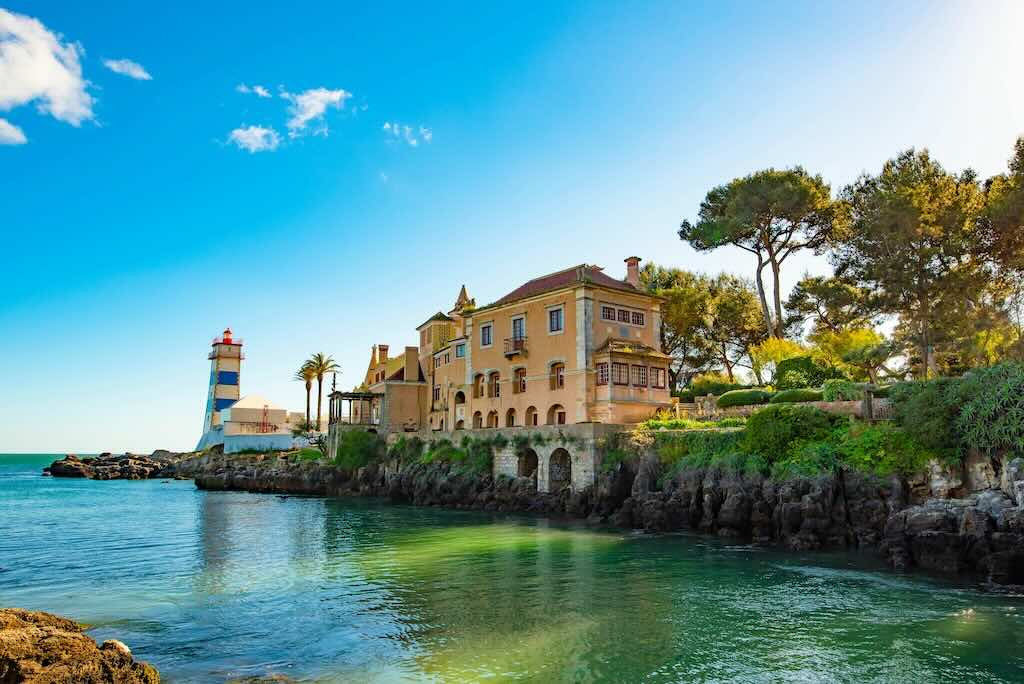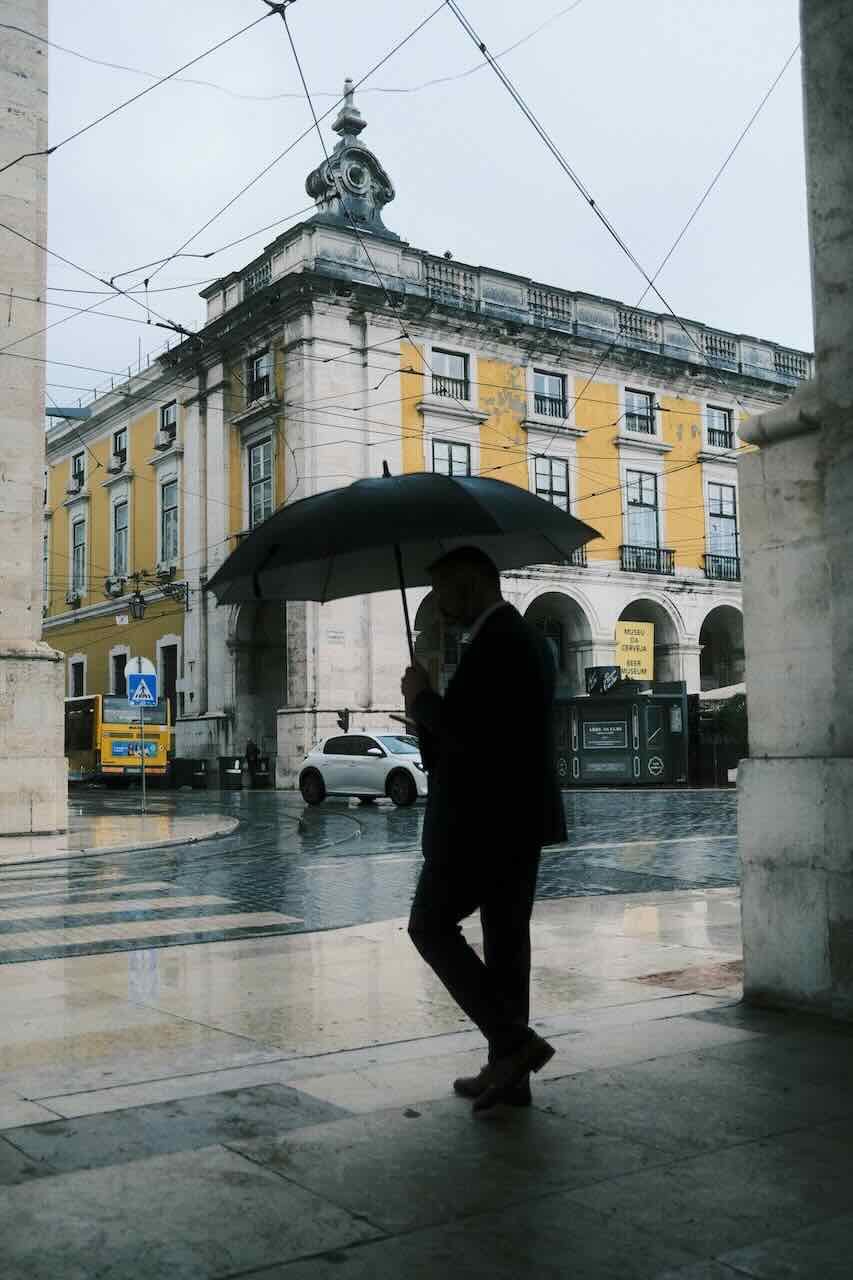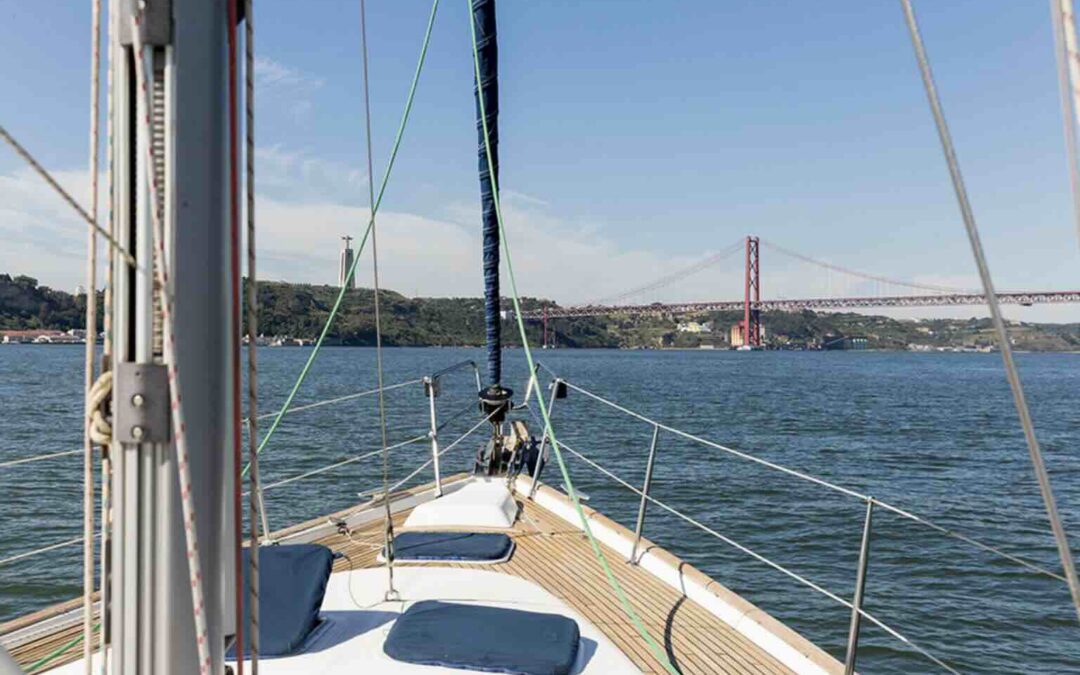6 spots you need to see in Baixa Chiado
Baixa Chiado District Presentation
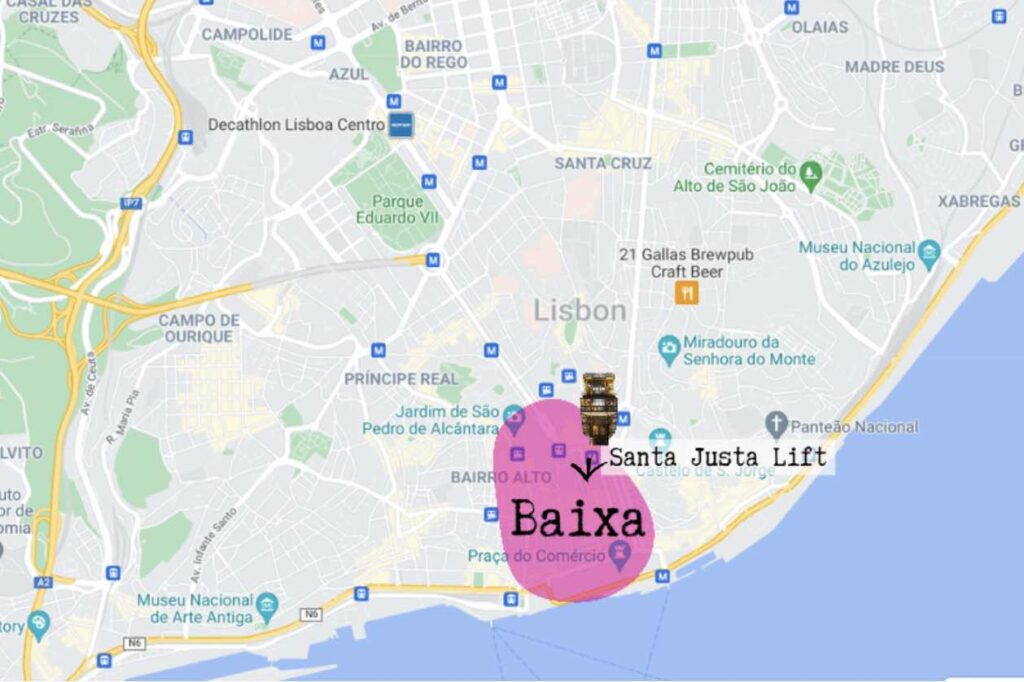
The Baixa Chiado district is one of the most famous and lively neighborhoods in Lisbon. Located in the heart of the city, it is known for its cobbled streets, historic buildings, elegant shops, and rich and diverse cultural life. Here are some of the main features of this fascinating neighborhood:
History
The Baixa Chiado district was completely rebuilt after the 1755 earthquake that devastated Lisbon. The reconstruction was led by the Marquis of Pombal, who designed an innovative urban plan for the city, characterized by straight streets and neoclassical architecture. Many buildings in the neighborhood are relatively recent, but they were built in accordance with the city’s architectural and aesthetic traditions.
Culture
Baixa Chiado is a major cultural center in Lisbon, with numerous museums, art galleries, theaters, and performance venues. There is something for every taste, from classical music to popular Portuguese music, theater, and visual arts. The streets of the neighborhood are also bustling with street artists and performances of all kinds.
Gastronomy
The neighborhood offers a wide range of restaurants and cafes serving traditional Portuguese cuisine as well as international dishes. You can taste specialties such as cod, pastéis de nata (custard tarts), and Port wine.
Shopping
The shopping streets in the neighborhood are famous for their elegant boutiques offering fashion items, accessories, books, souvenirs, and much more. Rua Augusta, Rua do Carmo, and Rua Garrett are among the most popular streets for shopping.
Transport
Baixa Chiado is easily accessible thanks to its excellent transport connections. It is served by several metro lines, trams, and buses, as well as the famous Elevador de Santa Justa, which connects Rua do Carmo to the Bairro Alto hill.
In summary, Baixa Chiado is a must-visit destination for tourists exploring Lisbon. It offers a unique combination of history, culture, gastronomy, and shopping, as well as a lively and cosmopolitan atmosphere.
The Essential 6 Places to Visit in Baixa Chiado:
1. Elevador de Santa Justa
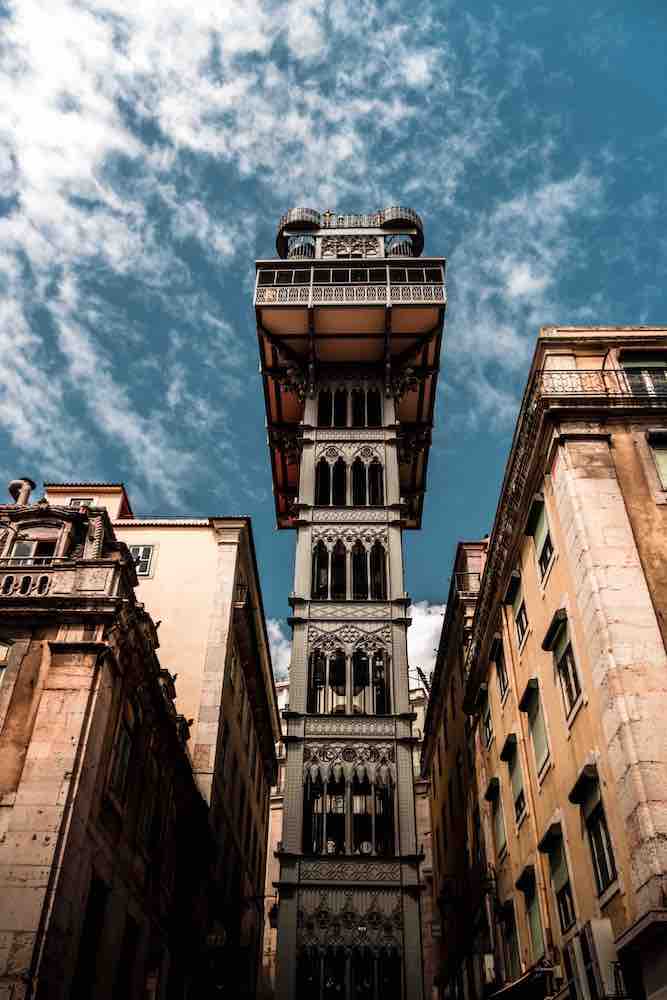
This historic wrought-iron elevator connects Baixa Chiado to the Bairro Alto hill. Built in 1902 by the Portuguese engineer Raoul Mesnier du Ponsard, who was inspired by the Eiffel Tower, the elevator stands at a height of 45 meters and offers stunning views of Lisbon. It was restored in 2002 and is now classified as a national monument. If you have the Lisboa Card, the elevator ride is included in the ticket. Alternatively, you can access the second-to-last level for free via Carmo Square and then pay only €1.50 to reach the platform.
2. Convento do Carmo
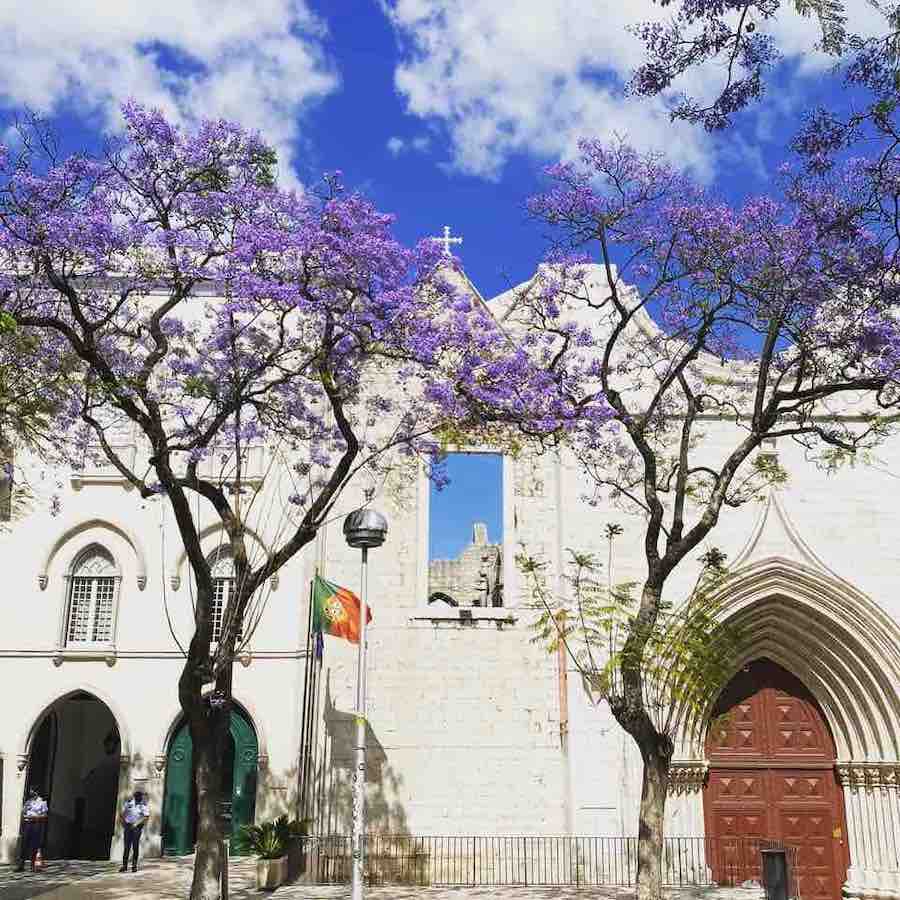
This Gothic convent in ruins, accessible from Elevador de Santa Justa and vice versa, is a poignant testament to Lisbon’s history. Built in the 14th century, it was severely damaged during the 1755 earthquake. Today, only the outer walls remain, but the visit is worth it for the view of the city from the convent courtyard and its roof open to the sky. It now serves as an archaeological museum, with an entrance fee of €5. One can particularly enjoy sipping sangria in Praça do Carmo, blooming with lavender-colored jacarandas in May and June, making it one of the most romantic squares in the city.
3. Rua Augusta
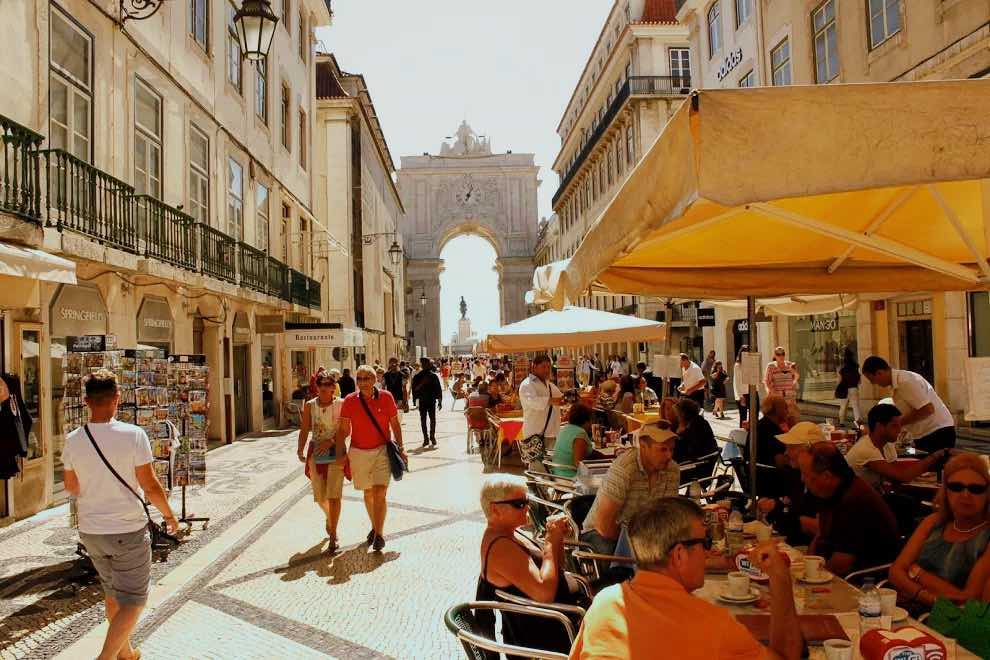
One of the most famous and lively streets in the Baixa Chiado neighborhood in Lisbon, Rua Augusta connects Praça do Comércio to Praça Dom Pedro IV (Rossio Square). It is lined with historic buildings, shops, restaurants, and cafes.
4. The Arch of Rua Augusta
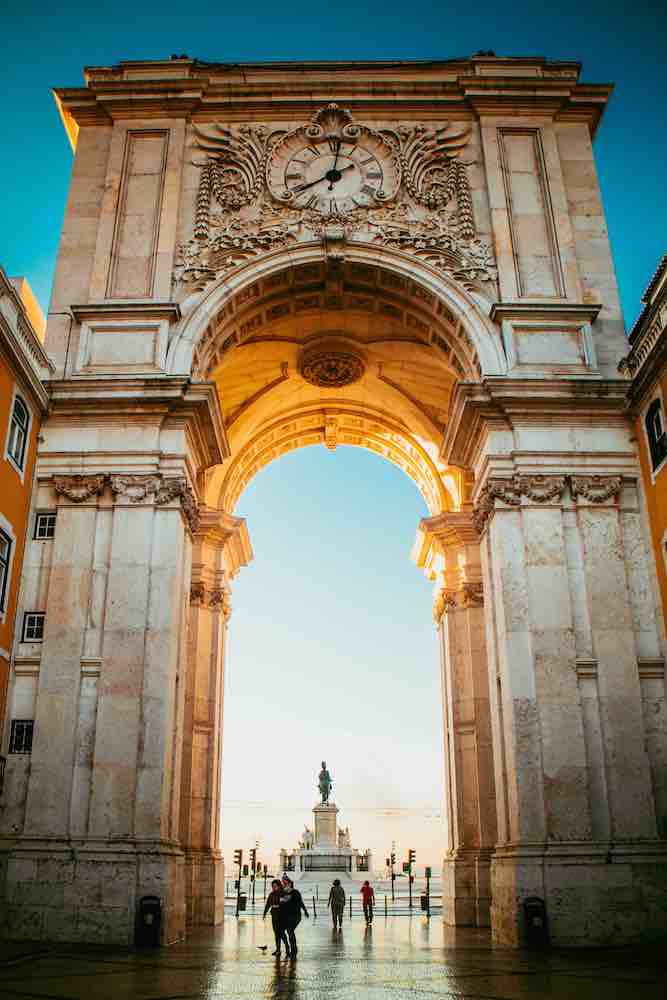
Also known as Arco da Rua Augusta, this triumphal arch is an iconic monument located at the northern end of Rua Augusta. It was built to commemorate the reconstruction of the city after the great earthquake of 1755. The arch stands at a height of 30 meters and is decorated with numerous sculptures and allegorical statues representing glory, fame, history, and geography.
You can climb to the terrace of the Arch of Triumph for €3 (included in the Lisboa Card) and enjoy a panoramic view of the city, including Praça do Comércio and the Tagus River. The monument is also illuminated at night, offering an impressive spectacle.
5. Praça do Comércio
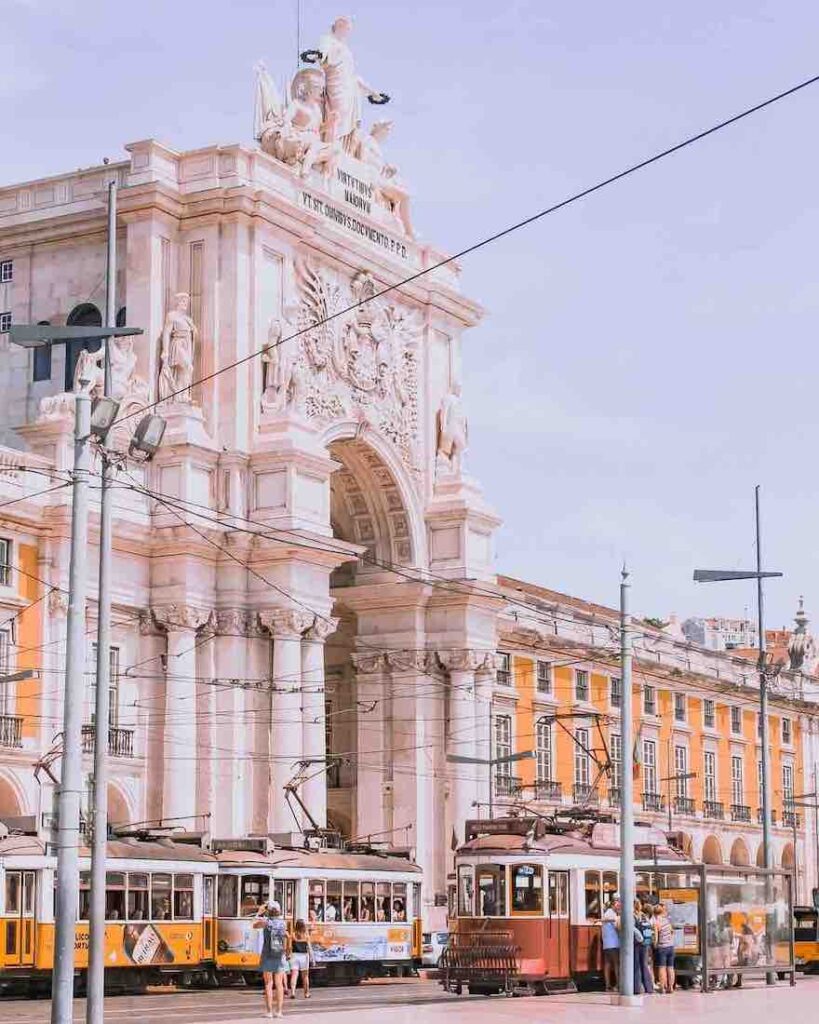
This imposing square is one of the largest in Europe and was once the center of Lisbon’s trade. It is lined with historic buildings, including the Palácio da Bolsa, which once housed the Lisbon Stock Exchange. In the center of the square stands a statue of King José I, who reigned from 1750 to 1777.
6. A Brasileira do Chiado
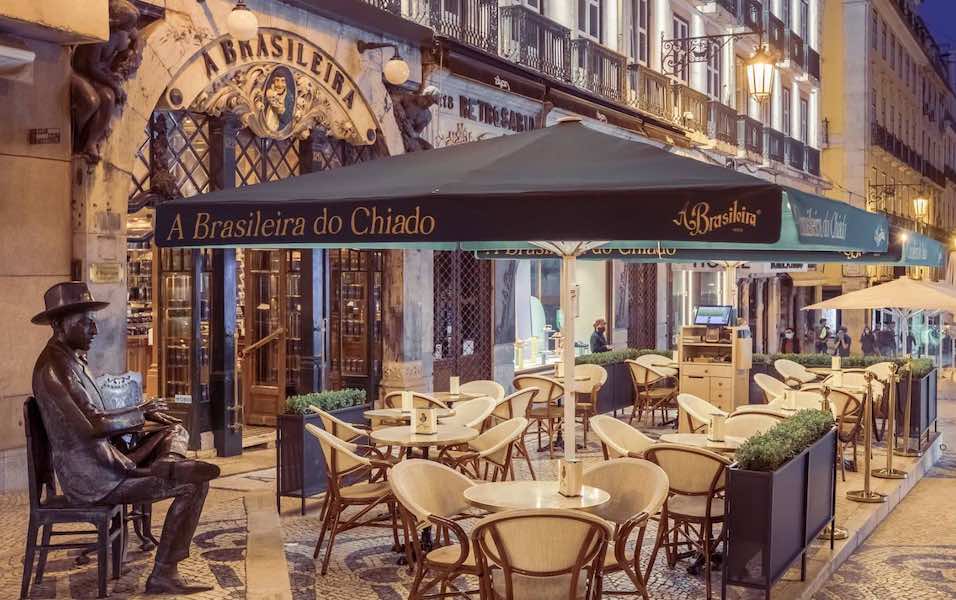
The Chiado neighborhood is known for its shops, cafes, and bookstores. It includes Rua Garrett, a shopping avenue with luxury boutiques, restaurants, and the Bertrand bookstore dating back to the 18th century. It is also the neighborhood of artists and writers who made it their home in the 19th century. Today, Chiado houses historical buildings and shops such as the São Carlos Theater and the National Library, as well as the Brasileira cafe.
Bonus : São Carlos National Theater
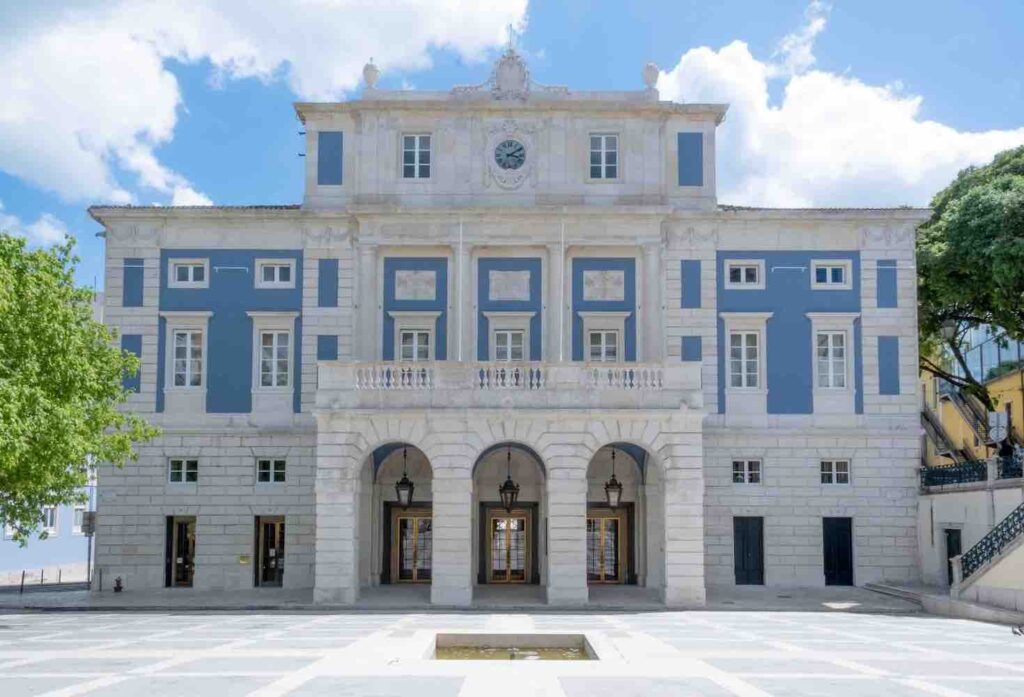
Inaugurated in 1793, the São Carlos National Theater is one of Portugal’s oldest performing arts venues. It was built in the neoclassical style and has been renovated several times over the years. The theater is known for its exceptional acoustics and has hosted many renowned artists. Today, it is one of Lisbon’s cultural gems, offering a diverse program of music, theater, and opera shows.
Epilogue
In summary, the Baixa Chiado district is a must-visit destination for tourists exploring Lisbon. It offers a unique combination of history, culture, gastronomy, and shopping, as well as a lively and cosmopolitan atmosphere.
If you want to discover all its secrets, book a private walking tour or tuktuk tour with one of our French-speaking guides. And subscribe to our newsletter to stay updated on our latest offerings.”



